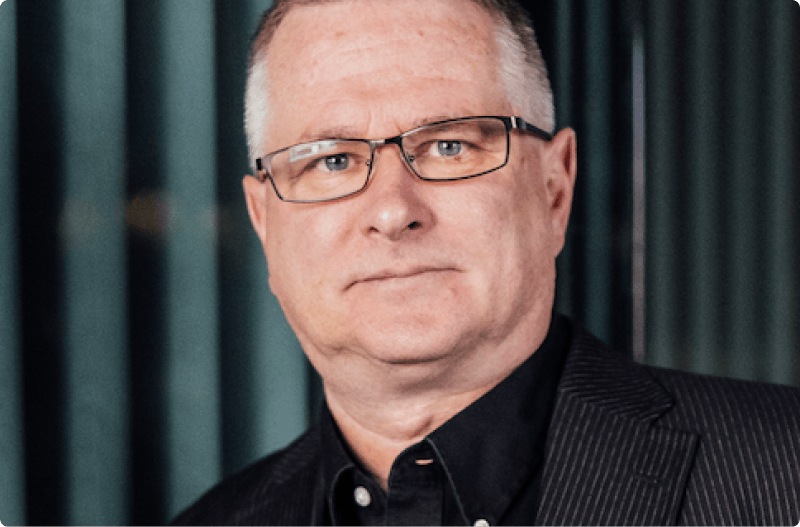
Holistic & Integrated BAM Will Make History
Mats Tunehag
In the global Business as Mission, BAM, movement we talk about taking our Sunday talk into a Monday walk. Whatever we believe and profess in church on Sunday should be permeating our lives and business practices the rest of the week.1
But we must strive towards a seamless integration of Sunday and Monday, of work and worship. There is a risk of seeing Sunday and Monday as two separate compartments.2
There are pros and cons with compartmentalization. It has been a key to scientific development. But the danger is often that one may fail to see the greater whole, how bits and pieces overlap, interact and connect.
Water and God
For example, H2O is hydrogen and oxygen. It can be compartmentalized and analyzed and it can manifest itself as water, ice and steam. But if you’re thirsty you don’t want a chemical formula but water, the integrated whole.
The Church teaches that God is triune; we can observe the three in one, and one in three throughout history. We can compartmentalize God; focus on the Son for example. But we mustn’t fail to see how the three divine persons overlap, interact and connect. It is a mystery, indeed, but nevertheless a truth to embrace.
Avodah
When we deal with Sunday and Monday, with serving God and people, with work and worship, we should learn from the use of the Hebrew word avodah in the Holy Scriptures. It is used interchangeably for work, worship and service. A few references:
- The Lord God took the man and put him in the Garden of Eden to work (avodah) it and take care of it. Gen 2:15
- Six days you shall work (avodah). Exodus 34:21
- This is what the LORD says: Let my people go, so that they may worship (avodah) me. – Exodus 8:1
- But as for me and my household, we will serve (avodah) the Lord. – Joshua 24:15
Worship in the temple is different from manual labor in the field. But that doesn’t mean that they are disconnected from who we are, created in God’s image, with a purpose to both work and worship. Work can be worship.3
Avodah is a picture of an integrated faith. It is a life where work and worship come from the same root. “Whatever you do, do it all for the glory of God.” (1 Cor 10:31)
This is also a challenge in BAM and the quadruple bottom line: financial, social, environmental and spiritual. We can and should at times compartmentalize for planning, operation and evaluation. But we also need to recognize that they overlap, interact and connect; they form a greater whole.
We must avoid playing one important entity against the other. It is not hydrogen vs. oxygen, God the Father vs. the Son, work vs. worship or financial bottom-line vs. a spiritual impact. They are not same, but they belong together.
Entrepreneurship as calling
So, BAM is an expression of a holistic lifestyle, where godly values and good business practices are integrated. Thus, our daily work is intimately related to serving God and people. Our businesses are not a distraction from “doing ministry”.4
“Entrepreneurs, managers and all who work in business, should be encouraged to recognize their work as a true vocation and to respond to God’s call in the spirit of true disciples. In doing so, they engage in the noble task of serving their brothers and sisters and of building up the Kingdom of God.” 5
To work is deeply divine and deeply human. The same applies also to creativity in business. It is a reflection of who we are created in God’s image. But our work is also a part of God’s redemptive mission throughout history. Thus, work is part of a greater story – His story. To do BAM for God and people is about making history.
1 See Business as Mission is bigger than you think for 12 examples of key Christian values and Biblical themes and how they translate into business.
2 Dorothy Sayers notes in her essay ‘Why Work’: “In nothing has the church so lost her hold on reality as in her failure to understand and respect the secular vocation. She has allowed work and religion to become separate departments, and is astonished to find that, as a result, the secular work of the world is turning to purely selfish and destructive ends, and that the greater part of the world’s intelligent workers have become irreligious, or at least, uninterested in religion. But is it astonishing? How can anyone remain interested in a religion which seems to have no concern with nine-tenths of his life? The Church’s approach to an intelligent carpenter is usually confined to exhorting him not to be drunk and disorderly in his leisure hours, and to come to church on Sundays. What the Church should be telling him is this: that the very first demand that his religion makes upon him is that he should make good tables.”
3 Tomas Aquinas’ definition of beauty also has three parts: Integritas (integrity), Consonantia (proportion), and Claritas (clarity) Again, three in one. They can be analyzed one at a time or two in contrast, but it is the combined three that constitute beauty.
4 Check the video: ‘Business like Bach’. Vimeo or at Matstunehag.com. This very short video makes the cogent point that just as Bach put years of hard work and practice into developing the extraordinary musical gifts given to him by God, some of us are given the gift of business as a way to bring glory to God. We should not see business as a distraction but rather as an instrument worthy of our time, energy and for “the greater glory of God.”
5 Vocation of the Business Leader, published by the Pontifical Council for Justice and Peace
